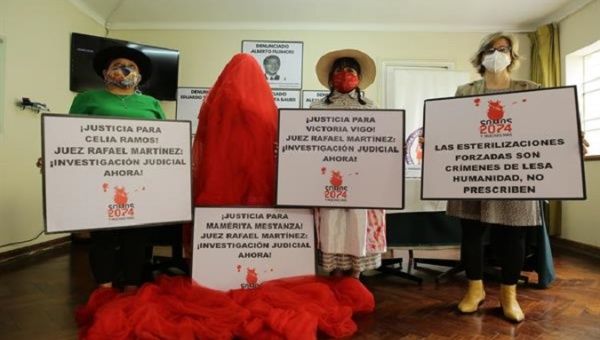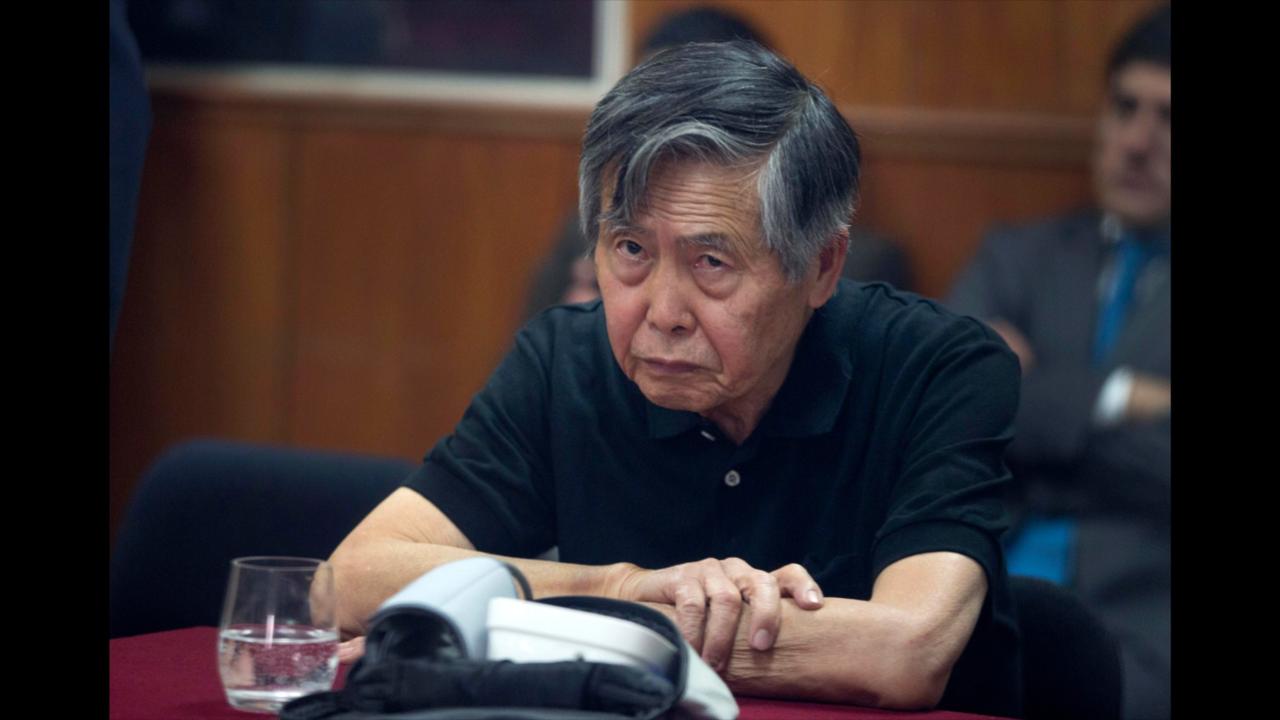Welcome to DU!
The truly grassroots left-of-center political community where regular people, not algorithms, drive the discussions and set the standards.
Join the community:
Create a free account
Support DU (and get rid of ads!):
Become a Star Member
Latest Breaking News
Editorials & Other Articles
General Discussion
The DU Lounge
All Forums
Issue Forums
Culture Forums
Alliance Forums
Region Forums
Support Forums
Help & Search
Latin America
Related: About this forum'We Demand Justice', Victims of Fujimori's Mass Sterilizations

Citizens demand justice for forced sterilizations' victims, Lima, Peru, Nov. 17, 2021. | Photo: EFE
Published 18 November 2021
Peruvian justice’s investigation of 1,300 forced sterilizations ordered by dictator Alberto Fujimori (1990-2000) is in danger because Judge Rafael Martinez has taken over two months to decide whether to start the investigation, lawyers for the victims condemned on Wednesday.
"Martinez's attitude shows that the judiciary power does not prioritize the case," the defense lawyer Milton Campos stated, recalling that the Attorney's General Office tried to archive the investigation in 2009, 2014, 2016, and 2018.
"Our voices are dry of telling thousands of times what the dictatorship did to us. If Martinez determines that there are not sufficient reasons to investigate the case, our attorneys will appeal his decision," forced sterilization's victim Victoria Vigo stated.
Between 1996 and 2000, Fujimori organized countless "health festivals" in remote villages, in which fireworks were thrown to attract, deceive, and sterilize women without informed consent. This strategy sought to reduce poverty rates in the country by curbing the birth rate of low-income people.
Link to tweet
More:
https://www.telesurenglish.net/news/We-Demand-Justice-Victims-of-Fujimoris-Mass-Sterilizations-20211118-0009.html

Fujimori
From March 1st:
Peru forced sterilisations case reaches key stage
Published1 March
. . .
What is the case about?
More than 270,000 women and 22,000 men were sterilised as part of a government-run birth control programme between 1996 and 2000, according to official figures from Peru's health ministry.
Health officials from the administration of then-President Alberto Fujimori, and the ex-leader himself, have maintained that all the sterilisations were carried out with the consent of the patients.
But thousands of women have said they were misled, harassed, blackmailed or forced to undergo the procedure.
What do the women say?
Most of the thousands of women who have spoken out were from poor, indigenous areas of Peru. Many spoke Quechua as their first language and only limited, or no Spanish, meaning that they did not always understand the documents they were pressured to sign by medical staff.
Rudecinda Quilla is one of those whose statement forms part of the legal evidence. She says that when she tried to get issued a birth certificate for her fourth child in 1996, she was told by doctors that the only way to get the certificate would be to agree to have tubal ligation.
Ms Quilla, who was 24 at the time, refused. She says she was forced onto a hospital bed, her hands and feet tied while she was injected with an anaesthetic. When she woke up hours later, she had been sterilised and staff told her that she would "never breed like an animal again".
More:
https://www.bbc.com/news/world-latin-america-56201575
~ ~ ~
Forcibly sterilized during Fujimori dictatorship, thousands of Peruvian women demand justice
March 3, 2021 8.25am EST
The regime of Peruvian dictator Alberto Fujimori sterilized 272,028 people between 1996 and 2001, the majority of them Indigenous women from poor, rural areas – and some without consent.
Now, in public hearings that began earlier this year, thousands of these women are demanding justice for what they say were forced sterilization procedures called tubal ligations.
Sterilization was a covert part of Fujimori’s “family planning” policy, which purported to give women “the tools necessary [for them] to make decisions about their lives.” But in fact, as revealed in government documents published by the Peru human rights ombudsman’s office in 2002, the regime saw controlling birth rates as a way to fight “resource depletion” and “economic downturn.”
These were euphemisms for what Fujimori, and past leaders of Peru, referred to as the “Indian problem” – higher birth rates among Indigenous people than Peruvians of European descent. And since Indigenous women of Quechua descent had the highest poverty rates in Peru, they were the government’s main target for “family planning.”
More:
https://theconversation.com/forcibly-sterilized-during-fujimori-dictatorship-thousands-of-peruvian-women-demand-justice-155086
